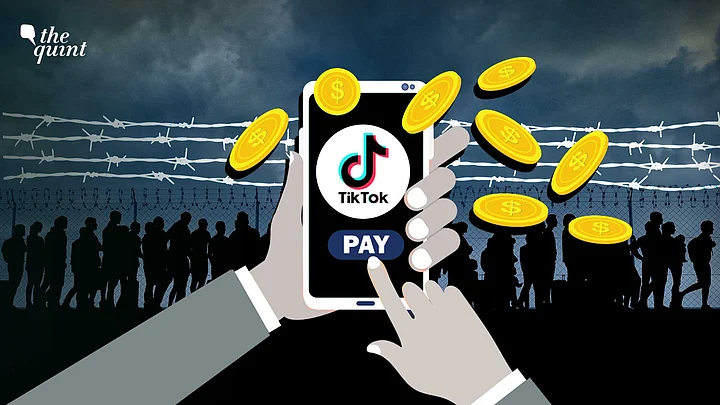Displaced families in war-torn Syria are begging for money on TikTok while the social media platform takes away 70 percent of the proceeds they receive, an investigative report has found.
Since early 2022, families in Syria have been livestreaming on the app for hours, pleading for gifts which have a cash value.
Streams earned up to $1,000 an hour, but the people in the refugee camps claimed to have received only a small fraction of the amounts sent by their benefactors, an investigation by BBC found.
How the Business Model Works
In camps in northwest Syria, the trend of begging on TikTok livestreams was being facilitated by so-called "TikTok middlemen," who would provide mobile phones and other equipment to the families and urge them to beg on the app.
The middlemen reportedly belong to agencies affiliated with TikTok in China and West Asia, which are a part of the platform's global strategy to recruit livestreamers and ensure that people spend more time on the platform.
Since TikTok is algorithm-based and suggests content based on a person's geographical location, the middlemen said that they preferred to use British SIM cards as, according to them, UK citizens were the most generous donors.
The gifts that families are asking for are digital, but they cost the viewers actual money and can be withdrawn from the platform as cash.
The gifts include digital roses, which cost a few cents, to virtual lions, which are worth as much as $500.
Mona Ali Al-Karim and her six daughters are among the various families who go live on TikTok livestreams everyday, sitting on the floor of their makeshift tent for hours at a stretch, repeating the few English phrases that they have been taught, like "Please like, please share, please gift."
Al-Karim's husband was killed in an airstrike, and she has been begging on the platform to pay for an operation for her daughter Sharifa, who is blind.
How the Investigation Was Carried Out
To find out how much TikTok was extracting from the families, a reporter affiliated to the BBC contacted an agency that works for the platform, saying that he was living in one of the camps.
He then created an account and went live, while the BBC sent gifts on the app worth $106 from a different account.
By the time the livestream ended, the balance in the reporter's account was a mere $33. TikTok had taken away 69 percent of the value of the gifts.
The remaining $33 was further reduced by 10 percent when it was withdrawn from the local money transfer shop. TikTok middlemen would also take a cut of 35 percent from the remainder, leaving the recipient with just $19.
Agencies affiliated to TikTok that facilitate such livestreams are based all around the world, and are contacted by the social media giant to help content creators reach larger audiences.
TikTok pays them a commission on the basis of the duration of livestreams and the total value of the gifts received, the report stated.
'Such Livestreams Contrary to TikTok's Own Guidelines'
A spokesperson of Access Now, a digital rights organisation, said, however, that these livestreams were contrary to TikTok's own policies to "prevent the harm, endangerment or exploitation" of children on the platform.
"TikTok clearly states that users are not allowed to explicitly solicit gifts, so this is a clear violation of their own terms of services, as well as the rights of these people."Marwa Fatafta, Access Now
Further, the platform's rules state that users must have at least 1,000 followers before they can go live. Also, they must not directly solicit gifts or harm, endanger or exploit minors on the platform.
TikTok influencer and former professional rugby player Keith Mason had donated $330 to one of the families begging on the app, and encouraged his one million followers to do the same.
However, when told about the ongoing "exploitative" practices, Mason said that it was "ridiculous" and "unfair" to the Syrian families.
"You've got to have some transparency. To me, that's very greedy," he said.
TikTok's Response
TikTok, on the other hand, has said that it does not allow "exploitative begging" and claimed that its commission from the proceeds received were far lesser than 70 percent. However, it did not declare the exact amount.
Reacting to the report, the social media platform said that it was "deeply concerned" and had taken "prompt and rigorous action" regarding the issue.
"This type of content is not allowed on our platform, and we are further strengthening our global policies around exploitative begging."TikTok
The platform is the world's fastest-growing social media company and has minted over $6.2 billion in gross revenue from in-app spending since its creation in 2017, as per analytics firm Sensor Tower.
(With inputs from BBC.)
